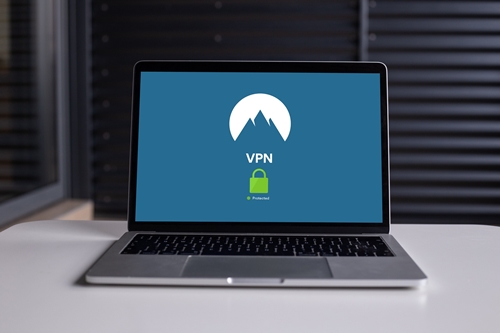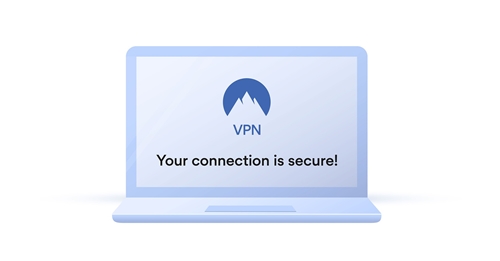What Is the Most Secure VPN Protocol?

People use VPNs, short for Virtual Private Networks. to keep their internet browsing private and secure. VPNs encrypt your data, change your IP address, and make your traffic untraceable. This is achieved by the use of various VPN protocols.
There are many protocols, some of which are old and outdated, as well as some which are new, open source, and regularly updated to ensure optimal security. If you are concerned about your web browsing privacy, a secure VPN protocol is a must have.
In this article, you will find in-depth information about the most secure VPN protocols.
How VPN Protocols Work
VPNs are a special kind of network connections which use additional security measures to prevent others from seeing your identity and browsing data. They use two sophisticated technologies to do that – VPN encapsulation and encryption.
As its name suggests, encapsulation puts the data packets in a capsule, in the form of another packet. This shields the data from prying eyes and hackers. Encryption is used for encoding and decoding the data. As such, even if somebody manages to get ahold of your data, they will not be able to decode it when it’s encrypted.
Each VPN uses these technologies, but their effectiveness largely depends on the protocol used. There are several types of VPN protocols, but we will only list the four considered the most secure right now.

The Most Secure VPN Protocols
1. OpenVPN
All the major VPN providers will recommend you to use the OpenVPN protocol. Although it is new, it is very secure and flexible. Its name actually suggests that it is open source, which means it is getting regular updates, maintenance, and security checks by its supporters. It is based on OpenSSL library and TLS V!/SSL V3 protocols.
The traffic that goes through OpenVPN connections is nearly impossible to discern, whether transmitted through an SSL or HTTPS connection. This protocol also makes your connection more resilient to blocking and hacking.
This VPN will easily waltz its way around firewalls, and it is fast as well, especially if you use the UDP port. Let’s move on to the most important part, security. OpenVPN uses shared keys, HMAC authentication, and OpenSLL protocol. If this isn’t enough, it uses AES encryption, too.
In multiple tests, OpenVPN remained untouchable to hacking, unlike other VPN protocols. AES encryption maintains performance while handling even sizeable files, due to its 128-bit block. There are no weaknesses to this type of encryption.
The downsides of OpenVPN are not many; however, they exist. For one, this protocol relies on third-party applications. Setting it up properly can be very challenging, but most providers will help you out. It works great on desktop, but might not be ideal for mobile platforms.

2. SoftEther
SoftEther is another open source VPN protocol. It is fairly new, but it is spreading fast because it is totally free. You can use it on Linux, Mac, Windows, Android, Solaris, and FREEBSD operating systems. This is actually a multi-protocol, which means it supports various protocols such as EtherIP, OpenVPN, etc.
The main attribute of this protocol is its versatility. You can set it up on any platform you prefer and choose the VPN protocol that suits you best. Encryption on this protocol is tight, as it uses 256-bit AES encryption.
This protocol makes your VPN very fast and secure. It is still not as popular and praised as OpenVPN, but it makes a very solid contender for the top place in terms of reliability and performance.
3. SSTP
SSTP was released alongside Windows Vista. It is very secure and stable, but it is a Windows exclusive, developed by Microsoft. You can get it to work on other platforms, but it only performs well on Windows.
This protocol boasts AES encryption, which is a gold standard for security. Like OpenVPN, it uses SSL V3 type of connection. This is good for surpassing firewall and blocking problems. Its authentication is also great, requiring a key from both sides of a connection.
Security is lock-tight with this one, and there were never any issues or security breaches. Windows users should definitely consider SSTP a good alternative to the OpenVPN protocol. There was a rumor Microsoft built this protocol in cooperation with the NSA, but it was never confirmed.
4. IKEv2/IPSec
Based on IPSec, this protocol is the result of cooperation between Microsoft and Cisco. It is not an actual VPN protocol, but it acts like one. Since Windows 7, it has been integrated into every version of Windows. Also, it can be implemented on Blackberry devices and Linux. It is probably the best choice for Blackberry users because it is also one of the few VPN choices for it.
This protocol is very fast and consistent, even if you are changing networks. Your VPN connection will remain intact even if your connection fails or you switch from data connection to Wi-Fi connection. It is a very secure and reliable protocol that primarily targets mobile users.
This protocol is still not widely supported, but it is a fast and secure option. Plus, it is easy to set up.

Enter the Safety Zone
More and more people are using VPNs these days and it makes sense, seeing as internet privacy is becoming weaker by the day because of hackers and other security intruders. When choosing a VPN, make sure to go for a secure VPN protocol, such as OpenVPN.
You can choose another option from our list, depending on your platform and preferences. All of them are secure, as the less secure, outdated protocols didn’t even make our list. Those are the likes of PPTP and L2TP/IPsec, which you should avoid if you care about security.
Which VPN service do you use and what protocol is it based on? Are you satisfied with the level of privacy and security it provides you with? Let us know in the comments below.
















